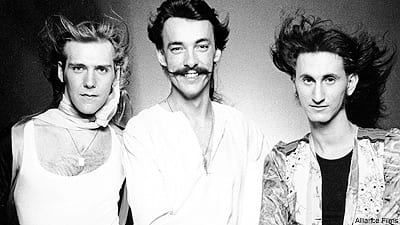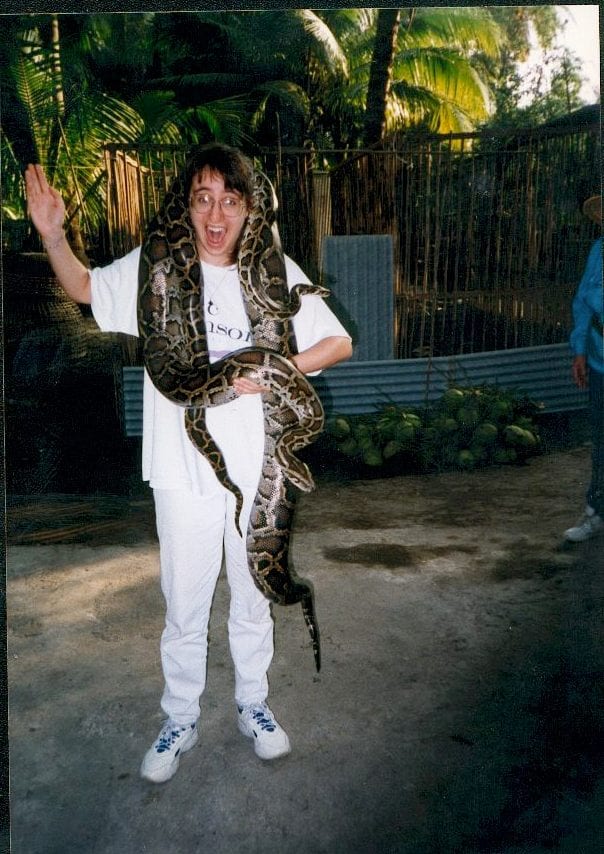In my last post I talked about my experience at the Rush concert, and how the band and its followers have created a whole culture around their music. If you are a part of that culture, you learn a special language, terminology, symbols, and more. If you are unfamiliar with this culture, however, you might feel excluded in certain situations, even if the Rush fans had no negative intent.
In today’s post I will address a different type of exclusion in the United States – that of age.
I have been seeing Rush play since I was eighteen years old. The Canadian rock group formed in 1968, and have had the same lineup since 1974: Bassist and vocalist Geddy Lee, guitarist Alex Lifeson, and drummer Neil Peart.
Over the years Rush has gone through a tapestry of musical phases, but their musicianship has never wavered. They practice eight hours a day for tours and their shows sell out. Most of their albums have gone platinum or multi-platinum.
Yet in spite of all these accomplishments and their legion of awards, whenever I mention that I will be seeing them play, I get similar responses from people:
“Rush?? Are those guys still around? Wow, they are like the dinosaurs of rock.”
“Rush? Man, those guys must be ancient by now! They probably use walkers to get on stage!”
Alex Lifeson and Geddy Lee are only 59 years old.
I constantly come to the defense of my favorite band by letting people know that their musicianship is better than ever, that they are still writing fresh, innovative songs, and that they kick the butts of most musicians half their age.
But underlying these arguments is a fundamental cultural tension – the obsession with youth in America. One could hardly say that 59 is “old”, and yet those assumptions about Rush linger and hover like hummingbirds over sugar water.
Historically it makes some sense why the U.S. is so youth-obsessed. Think of the migration to the “New World” and how a new nation was formed. Everything established (European hierarchy, the class system) was considered bad, and everything new was good.
I believe, however, that we must find a way to reconcile our history with an attitude of inclusion, otherwise the vital skills and wisdom from our elders, and our youth will be lost to us.
Since I turned 40 I have begun to notice the exclusion of age myself. I can’t count how many professional associations are for 40 and under, as if what I have to offer disappears the day I turn 41. We have awards like Top 40 Under 40, and programs for applicants between 25 and 40. Suddenly I find myself out of the running for a host of professional opportunities, even though my skill set is broader and more solid than ever, and my experience over the last ten years has made me a better speaker, interculturalist, and businessperson.
like Top 40 Under 40, and programs for applicants between 25 and 40. Suddenly I find myself out of the running for a host of professional opportunities, even though my skill set is broader and more solid than ever, and my experience over the last ten years has made me a better speaker, interculturalist, and businessperson.
When I spent the summer in India I found the opposite to be true. A colleague of mine was looking for an employee and tossed aside many candidates because they were too young. Yes, this is another form of exclusion. So what do we do?
Can we create a culture where all ages are respected?
I believe we can, but it will require a heightened awareness of our assumptions. We must develop a consciousness of our own biases, so that when we encounter those biases we can hit the pause button.
After pausing, we can ask ourselves questions like…
- Am I excluding this person based on their age (in either direction)?
- Is that exclusion helping me meet my objective?
- How could I reframe my perception of this person to see them at their highest and best?
- What does this person have to offer, regardless of their age?
- What generational differences might impact our working together? How do I want to address those differences proactively?
- What are some models of age from other cultures or societies I can look to for a different perspective?
- How is my own culture affecting the way I see this person?
I hope you have the opportunity to see Rush play live one day. Not only will they knock your socks off, but you will have the chance to see all generations, from young children to grandparents enjoying the universal language of rock!
Until next time…







This is so true. I didn’t see it much at 40 but times have changed. At 60+, forget about it. Experience in the U.S. doesn’t seem to have a lot of value any more. I think we are wasting major resources. We hear about all the technical shortages but we have older people with a lot of that experience looking for something to do.
Thanks for the posting.
Thanks so much for your comment, Mike. I cannot imagine how things must be for 60+ and I agree wholeheartedly that we are wasting resources. I will continue to address this issue in my trainings and speaking, and I know many people in my intercultural community who do as well. So know that we are out there advocating for inclusion for all ages!
I was speaking with my dad yesterday who is 71. He has years of experience in his field, still working with lots of energy. Yet he must alter his resume and delete much of his experience dating back to the 1970s because he will be considered too old. He laments this, and I was reflecting on your comment regarding India, where I’ve spent much time. Age and experience are valued, as is the wisdom that comes with age and experience. Contrast that with the US. By the way, I’m a former “Dead-head.” I saw the Grateful Dead over 125 times from 1986-1995. I relate with your comments in your Rush post about cultures that revolve around the music, including the special language, terminology, and symbols…. Rock on!
Thank you so much, Luis, for your insightful comment. When I read about your father deleting items off of his resume, I felt sad not only for him, but for all of those potential employers who are missing out on that wisdom and perspective. So much of our age bias in the US is very subconscious. You see it in every magazine with the ads focused on recapturing youth. You see it in the professional associations that are divided by age. That is fantastic about your Dead Head decade! I am seeing Rush three times on this tour and I wish it were more. Rock on, indeed!
If people had a problem with the guys in RUSH being 59 what about AC/DC all being over 60 and still touring?